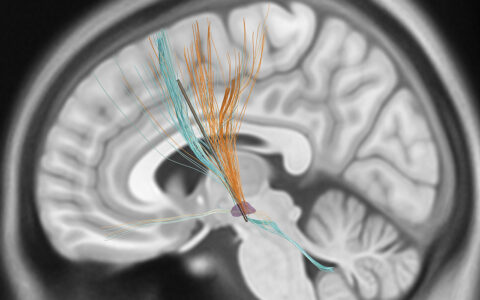Hospitalized older adults discharged to skilled nursing facilities represent the largest segment of Medicare beneficiaries discharged to post-acute care services. These adults are at a high risk for loss of independence and other poor clinical outcomes. Many of these patients have clinical conditions that do not fit into a discrete disease category.
Geriatric “syndromes” often share underlying causes and include conditions like incontinence, weight loss, cognitive impairment, functional decline and depression. This clinical information is rarely communicated to the skilled nursing facility (SNF) during the transition of care. In addition to geriatric syndromes, these patients frequently have multi-morbidity and polypharmacy. Complex drug regimens increase the risk of further complications, including poor patient adherence and the potential for serious drug and disease interactions.
Improving Medication Regimens
One research focus at Vanderbilt Center for Quality Aging is improving the transition from hospitalization to skilled nursing. After having conducted several studies on identifying and communicating geriatric syndromes, researchers are currently testing a structured deprescribing intervention protocol called “Shed-Meds.” The protocol will be coupled with standardized screening assessments for eight geriatric syndromes to be implemented in the hospital and continued during the SNF stay.
“Older patients are taking an average of 15-plus medicines when they leave the hospital. Our overarching hypothesis is that reducing medications for them will favorably impact geriatric syndromes and other health outcomes.“
The goal of “Shed-Meds” intervention is to safely deprescribe medications, as defined by dose reductions and stopped medications, based on a combination of clinical criteria and patient preferences. The trial will evaluate the effects of this intervention on medication exposure, medication adherence, geriatric syndromes and health status across the care transitions from hospital to SNF to home. Each patient will have a 90-day follow-up period after SNF discharge, which includes a home visit.
“Older patients are taking an average of 15-plus medicines when they leave the hospital,” said John F. Schnelle, Ph.D., director of the center. “Our overarching hypothesis is that reducing medications for them will favorably impact geriatric syndromes and other health outcomes.”
The study, a 5-year, randomized, controlled-intervention trial, is funded by the National Institute on Aging. It will be conducted at Vanderbilt University Medical Center and in 18 SNFs in a six-county region, with a target of tracking 600 to 800 patients. Principal investigators are Sandra Simmons, Ph.D., and Eduard Vasilevskis, M.D., M.P.H.
“This is not just a clinician-driven initiative,” explained Simmons. “While we are working with geriatric nurse practitioners, pharmacists and hospitalists to provide clinical review, we are also conducting patient-centered interviews. We want to get the patient’s opinion and buy-in.”
“Deprescribing is not limited to getting rid of unnecessary medications. It’s also about reducing doses and making them easier to take. We think this will have an impact on adherence and, ultimately, on outcomes.”
Other Initiatives at Center
The center has a variety of federal and foundation grants. One of its studies addresses dementia care in assisted living facilities.
“Most people go into assisted living because they think these facilities are better staffed and they’re trying to avoid nursing homes,” said Simmons. “As residents in these facilities develop cognitive impairment, dementia care offers a way for them to stay instead of moving into a long-term care setting. But family members need guidance on how to select a dementia care facility and, especially, how to ask specific questions about their programming, staffing and “move-out” policies.”
Families and patients need to be better informed consumers when making care decisions. The Center for Quality Aging developed a guide for families, “How to Evaluate the Quality of Residential Care for Persons with Dementia,” available here.







